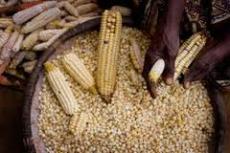by Lloyd Pswarayi
Zimbabwe held its harmonised elections on the July 31st 2013, and ZANU PF attained an overwhelming majority in the House of Assembly, with its presidential candidate Robert Mugabe defeating MDC’s Morgan Tsvangirai convincingly by amassing 61% of the total votes. This effectively marked the end of the Inclusive Government and ushered in a new mandate for ZANU PF to implement the policies contained in the party’s election manifesto. The 2013 elections were expected to address one of the fundamental problems of the Zimbabwe crisis – the crisis of legitimacy. However, there were more questions than answers concerning the outcome, and the MDCs have claimed that there was massive rigging. Notwithstanding the rigging allegations, the fact remains that ZANU PF is now in charge. ZANU PF was ‘voted’ for by the people and they claim that they derive their legitimacy from the outcome and not necessarily the process of the July 31 elections. The party and its apologists have successfully put a spin on election observer mission statements and added “fair, and credible” in describing the elections”, (Of course that is not true).
I argue here that the whole notion of “legitimacy’ is a debatable issue. In political science, “legitimacy usually is understood as the popular acceptance and recognition, by the public, of the authority of a governing régime, whereby authority has political power through consent and mutual understandings, not coercion”. Firstly, legitimacy is derived from a mandate given by the people willingly and readily to continuously surrender their power to the governing party. Legitimacy is therefore not a one day event, but it is something that has to be earned every day. Assuming that the process that led to the winning of elections was perfect and fit into the “free, fair, credible” description, policies to support the people that delivered this mandate will continuously justify the question of legitimacy.
I want to look at legitimacy from a food security perspective in Zimbabwe, given reports of possible starvation mostly in the rural areas. Reports point to the fact that nearly 2.2 million Zimbabweans currently face starvation. Government has assured the nation that no-one will starve and a deal has been struck to import maize from Zambia. This food security situation is worrying as it has become a trend that this country cannot feed its people and has to rely on food imports. This is especially unacceptable coming from the backdrop of a programme that saw nearly 350,000 families being allocated land in the year 2000 during the fast track land reform programme. But of course, failure of the process has however been squarely heaped on the MDC, sanctions and failure by the former Finance Minister to release funds to support the programme.
One of the key points in the ZANU PF election manifesto for the 2013 harmonised elections was adequate support to be given to farmers through finance schemes and the setting aside of $1billion for the sector. A government loses legitimacy when it cannot feed its people and rightly, people are bound to withdraw their support from it. In the new dispensation, addressing food security concerns is a fundamental problem that the ZANU PF government will face because there is no MDC to blame.
In my view, the government, and in particular, the Ministry of Agriculture, has not been serious about food security in this country. When a government cannot feed its people, surely it ceases to be relevant. If people are hungry, they may revolt against the system, and the only way for the system to contain this is would be to suppress its people through familiar tactics such as intimidation, violence, threats, targeting of perceived opinion makers such as teachers. The whole thing may end up messy with communities becoming unsafe to live in, and woman and children are directly violated. The real holders of power (the people) will demand change and this would be a legitimate call. From experiences in the past, ZANU PF has labelled this the “regime change agenda”.
Year in year out, there are reports of shortages of inputs, inputs stolen by chefs, inputs delivered late, and the results have not been surprising. The Minister of Finance, at his victory celebration party in Rusape recently pointed that government would supply agricultural inputs to 1.6 million families in Zimbabwe for the forthcoming season. These inputs include one bag of compound fertiliser, one bag of Ammonium Nitrate; 10kg bag of seed and “for the very first time”, a bag of agriculture lime. This may sound like ZANU PF means serious business, but this is a big joke and populist. It may only deliver hunger in 2014. This trick has been tried before multiple times and has produced nothing but disaster.
My advice to the Minister of Agriculture, VaMade is that his Ministry is very important and everything contained in the ZANU PF election manifesto hinges on ensuring food security. If this does not happen, unfortunately people (the real holders of power) will question why we need ZANU PF in government. They will even start talking about NIKUV this and NIKUV that and this would be undesirable talk that questions the party’s legitimacy to govern. I know you want to shame the West who have strongly criticised the land reform programme and the only way to do so is to ensure that all the silos owned by the Grain Marketing Board (GMB) are filled with grain and we are exporting to the region because we have achieved excesses. How do we achieve that excess Honourable Minister? Firstly I think government should immediately abandon piece-meal policies by supporting small-holder farmers fully with six (6) bags of Compound D, eight (8) bags of Ammonium, 25kg of seed maize and full extension services. This costs money and this is money that is not available. But there is a solution Honourable Minister. Government should support 1.6 million people with sufficient inputs that are availed on time and indiscriminately. People from other political parties also deserve access to these inputs as well, regardless of their political affiliation. It should probably also be made compulsory that everyone who benefited from state land through the land reform programme grows at least a hectare of maize. Yes I said compulsory! If government could compulsorily acquire land, then it can also compulsorily enforce production because it is in the public interest.
Whilst government is still working on securing funds to finance this sector, some mechanism needs to be put in place to identify legitimate small scale farmers in every district that can fully benefit from the government input scheme to grow maize. In return, government could consider a ratio of say 40/60 with the farmers, where the farmers retain 40% of the maize and sell the remaining 60% to the GMB at competitive prices. Even those who may not have directly benefited from full support would benefit from a pricing regime that encourages maize production and timely payments. Imagine what sustaining this over the years and making sure there is optimal production on land would do in the long term.
By so doing, you will be departing from a culture of dependency where every year we have to rely on Western donors to feed our people. Isn’t they are the very same people you claim want to effect a regime change? When you address the food security issues, more energy and resources are channelled into other sectors of the economy and create jobs for the youth that find themselves selling airtime even with university degrees.

